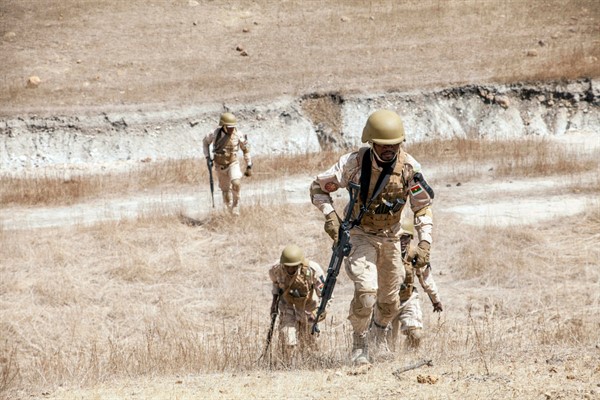State security forces in Burkina Faso summarily executed 31 unarmed people in the northern town of Djibo earlier this month, just hours after they were taken into custody, according to a recent report from Human Rights Watch. It described the killings as a “brutal mockery of a counterterrorism operation that may amount to a war crime.” The victims were suspected of collaborating with jihadist groups that have been operating in the area.
Shocking as the massacre may be, it is by no means an anomaly in northern Burkina Faso and the neighboring region of central Mali, which have become epicenters of violence in recent years. Jihadist groups have inserted themselves into local political, social and economic fissures, tapping into local grievances and intimidating those who defy them. The Malian and Burkinabe governments have responded with a blunt-force military campaign that silently condones or even encourages human rights abuses against civilians. The result, according to a recent research report from the French Institute of International Relations, is a cycle of violence in which “self-defense, rebellion and jihadism feed off of each other.”
Once an afterthought in international security circles, the western Sahel region of Africa burst onto the global agenda in 2012 when Mali’s government was overthrown by a haphazardly planned but ultimately successful military coup. The chaos in the capital, Bamako, provided an opportunity for jihadist groups aligned with al-Qaida to take over much of the country’s north. The following year, in response to fears that Mali would become the “Afghanistan of West Africa,” a French-led military intervention succeeded in driving jihadist groups from their northern strongholds.

